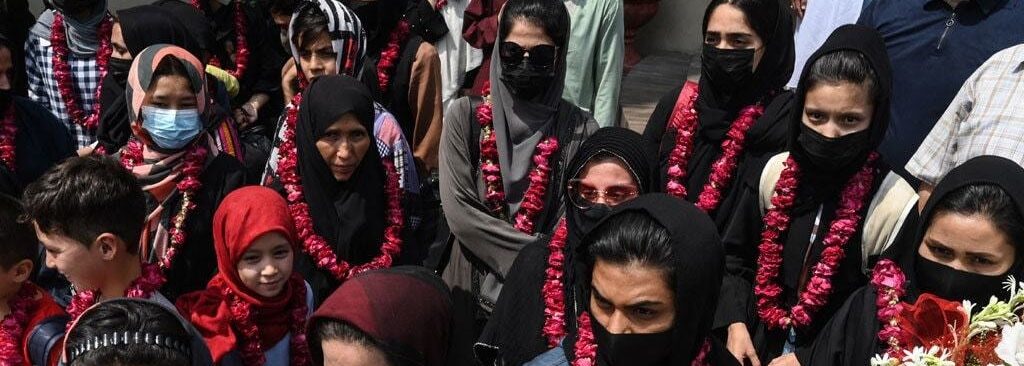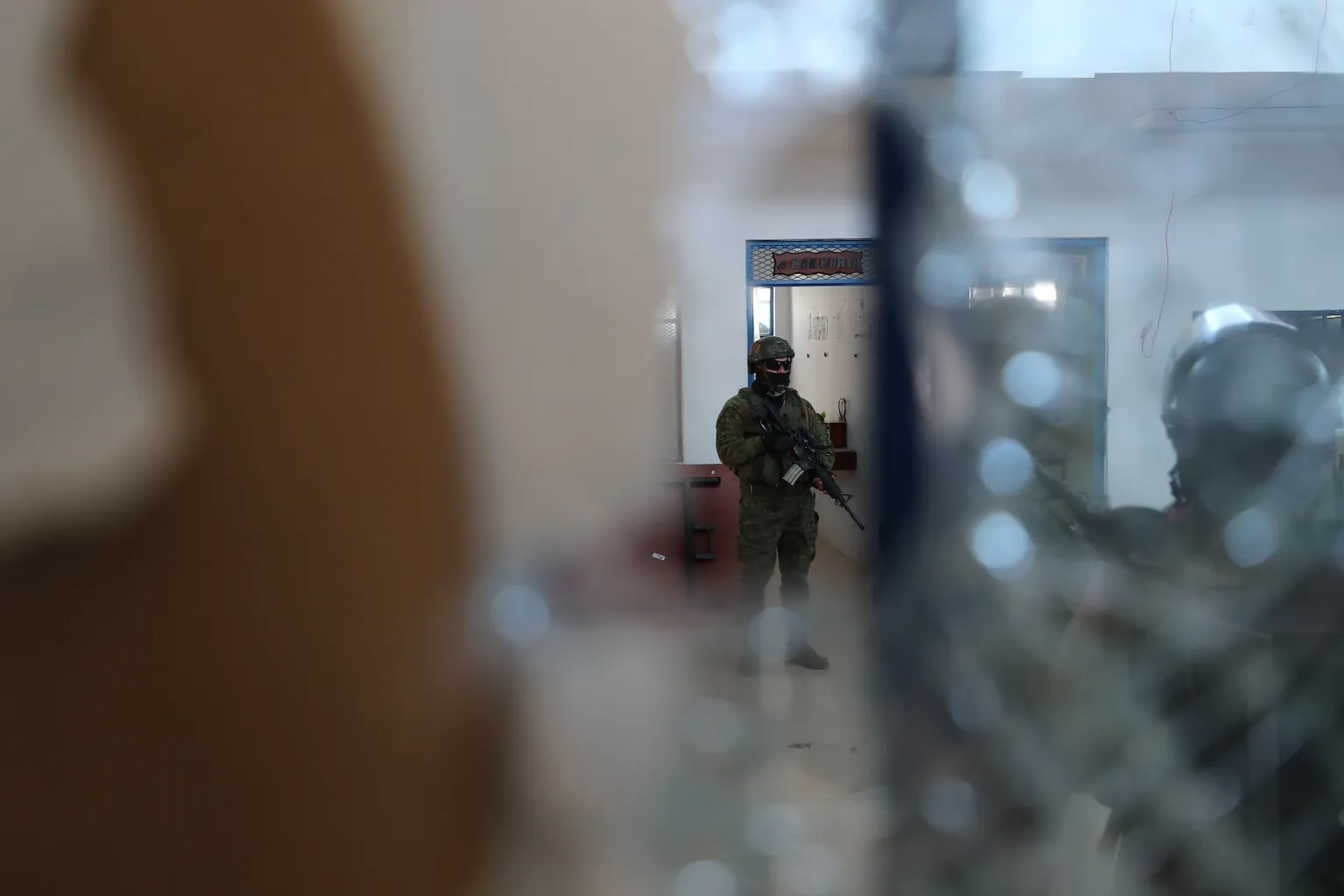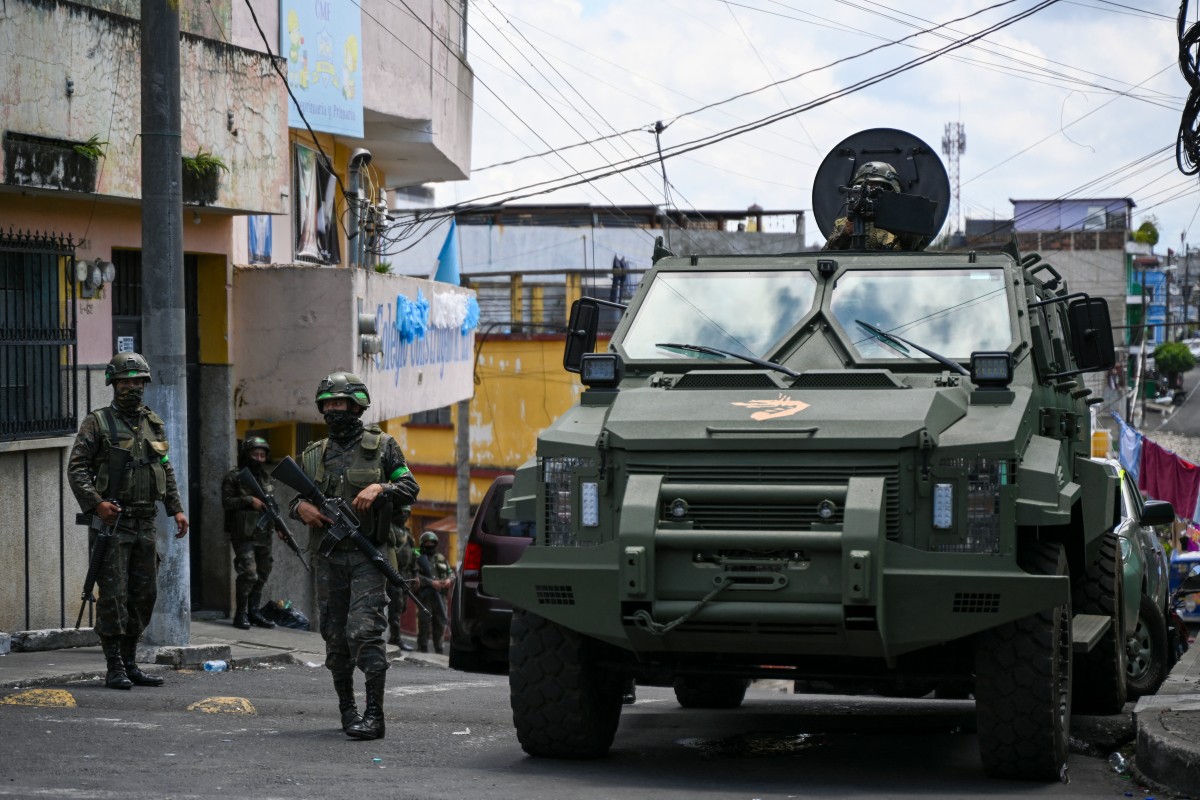Sin categoría
Afghan junior female football team to relocate to UK

Afghanistan’s junior female football team and their immediate families are set to relocate to Britain from Pakistan after recently escaping their homeland, the UK government said on Monday.
“We are working to finalise visas to the Afghanistan women’s football team and look forward to welcoming them to the UK shortly,” a government spokesperson said.
The team of around 35 young footballers, mostly teenagers, and their families — totalling around 130 people — just missed the hurried British airlift from Kabul in August, according to a UK-based charity helping them.
The squad were able to flee in small groups to Pakistan “with the assistance of some very brave people on the ground in Afghanistan”, said Jonathan Kendrick, chairman of the ROKiT conglomerate, whose foundation is providing assistance.
“From a humanitarian perspective, there was simply no option,” he said in a statement, noting they were “in a hugely dangerous, life-threatening, position should they not find a way to leave Afghanistan”.
Pakistan granted the players temporary 30-day visas and they were transported to Lahore, the capital of Punjab province, from where they applied to relocate to Britain.
“These young players, with whom we are in regular contact via video calls, are absolutely thrilled and relieved to have been given the opportunities that will come available to them in their new lives in the UK,” said Siu-Anne Marie Gill of the ROKiT Foundation.
She added it will “continue to support them as they settle into their new home in the coming weeks, to include helping to arrange further education, where possible”.
Gill said she hoped many of the players would undergo trials with several professional women’s football teams in Britain that “have already expressed great interest in meeting them”.
Britain has airlifted more than 15,000 people — both UK nationals and Afghan allies — from the war-torn country since the Taliban recaptured it in August.
London has also committed to welcome up to 20,000 people over the coming years, including around 5,000 in the first year, as part of its Afghan citizens’ resettlement scheme (ACRS).
“The government is committed to doing all it can to support those most in need, including vulnerable women and girls, and those at risk who have had to flee Afghanistan,” the government spokesperson added.
The interior ministry declined to detail the type of visas the female players would be getting and whether it was part of ACRS.
Sin categoría
Eight Killed in Series of Armed Attacks in Ecuador’s Manabí Province

At least eight people were killed in four separate armed attacks reported Sunday night in the cities of Manta and Montecristi, in Ecuador’s coastal province of Manabí, one of the areas hardest hit by the country’s escalating wave of criminal violence, local media reported on Monday.
The shootings occurred between 7:50 p.m. and 10:50 p.m. local time and affected several neighborhoods, as well as a family gathering, according to press reports. Police are investigating the incidents.
The first attack took place in the Los Artesanos sector of Montecristi, where a couple was shot dead in a public street.
Minutes later, in Manta’s 12 de Octubre neighborhood, a man was killed while sitting down. Police arrested a suspect at the scene and seized a 9mm magazine, authorities said.
A third incident occurred in the Bellavista area of Manta, when an armed assailant entered a home and shot a man during a family celebration. The attacker was captured by neighbors and sustained injuries.
The deadliest attack was reported at 10:50 p.m. in the Leonidas Proaño parish of Montecristi, where gunmen opened fire from two vehicles on a group of people, leaving four dead and five wounded.
According to Jaime Salgado, acting chief of the Manta Police District, officers recovered seven 7.62mm shell casings, consistent with rifle ammunition, and 14 .40-caliber casings at the scene.
With these killings, the Manta police district, a port and tourist area on Ecuador’s Pacific coast, has recorded 51 violent deaths so far in January 2026, according to official figures.
The attacks occurred amid a state of emergency declared by the government in December due to serious internal unrest in Manabí, where military operations have been intensified this month, particularly in high-conflict zones.
Sin categoría
El Salvador Launches Fourth Year of Ocean Mission to Protect Marine Ecosystems

El Salvador’s Ministry of Environment has launched the fourth consecutive year of “Ocean Mission,” a permanent strategy focused on the protection, restoration, and responsible management of marine ecosystems, linking conservation efforts from inland mountain ranges to the coastline.
During an event held at the Los Cóbanos Protected Natural Area, Environment Minister Fernando López highlighted the ecological, social, and economic value of the site, which is recognized as the country’s eighth wetland of international importance under the Ramsar Convention.
“We are in one of the most valuable natural treasures of our country, not only because of its beauty, but also due to the enormous ecological, social, and economic importance that Los Cóbanos holds for El Salvador,” López said.
The minister emphasized that this volcanic-origin ecosystem is home to coral reefs and key coastal-marine systems that serve as refuge, breeding, and feeding grounds for emblematic species such as sea turtles, cetaceans, and a wide diversity of fish.
“Protecting Los Cóbanos means protecting biodiversity, community livelihoods, the local economy, and our natural heritage,” López stated.
He also stressed that Ocean Mission goes beyond rhetoric, focusing instead on direct action framed within the National Environmental Education Policy. “We are not here to talk about environmental education; we are here to practice it,” he said, underscoring the guiding principle of moving from paper to action.
Sin categoría
Convicted gang member challenges Guatemala’s anti-gang law, citing Human Rights Violations

A member of a criminal gang currently facing sentencing for the crime of extortion has filed a constitutional appeal before Guatemala’s Constitutional Court against the recently approved and enacted Anti-Gang Law.
The appeal, submitted by Dylan Smaily Archila García, argues that the new legislation violates his fundamental human rights and claims there were procedural irregularities during its approval process, according to local Guatemalan media.
Archila García filed the motion just hours after the law took effect. The new legislation, passed by Guatemala’s Congress, increases penalties for crimes linked to gang activity and authorizes the construction of a mega-prison, modeled after El Salvador’s Center for the Confinement of Terrorism (CECOT).
Local outlets reported that in his petition, Archila García contends that the approval of the law did not comply with constitutional requirements and requests that the Court issue a ruling to annul the legislation, effectively halting its enforcement.
The appeal further claims that the Anti-Gang Law infringes on due process rights, as it allegedly fails to guarantee a fair criminal trial in which defendants can prove their innocence, undermining legal certainty and judicial security.
Through this legal action, the petitioner seeks to have the law suspended and ultimately struck down by the Constitutional Court, preventing it from being debated again in Congress.
-

 International4 days ago
International4 days agoU.S. Senate Rejects Budget, Bringing Government Closer to Shutdown Amid DHS Dispute
-

 International5 days ago
International5 days agoFootball Fan Killed in Clashes After Colombian League Match
-

 Central America5 days ago
Central America5 days agoGuatemala President Says Starlink Terminal Found Inside Prison
-

 International5 days ago
International5 days agoMissing Spanish Sailor Rescued After 11 Days Adrift in Mediterranean
-

 International5 days ago
International5 days agoRubio Says U.S. Could Participate in Follow-Up Russia-Ukraine Talks
-

 Central America3 days ago
Central America3 days agoPanama Supreme Court Strikes Down Panama Ports Concession as Unconstitutional
-

 International4 days ago
International4 days agoStorm Kristin Kills Five in Portugal, Leaves Nearly 500,000 Without Power
-

 Central America3 days ago
Central America3 days agoU.S. and Guatemala Sign Trade Deal Granting Zero Tariffs to Most Exports
-

 International4 days ago
International4 days agoMan Arrested After Vehicle Crashes Into Jewish Institution in Brooklyn
-

 International4 days ago
International4 days agoTrump Says Putin Agreed to One-Week Halt in Attacks on Ukraine Amid Extreme Cold
-

 Central America13 hours ago
Central America13 hours agoCosta Rica Goes to the Polls as Voters Choose Continuity or Change


























